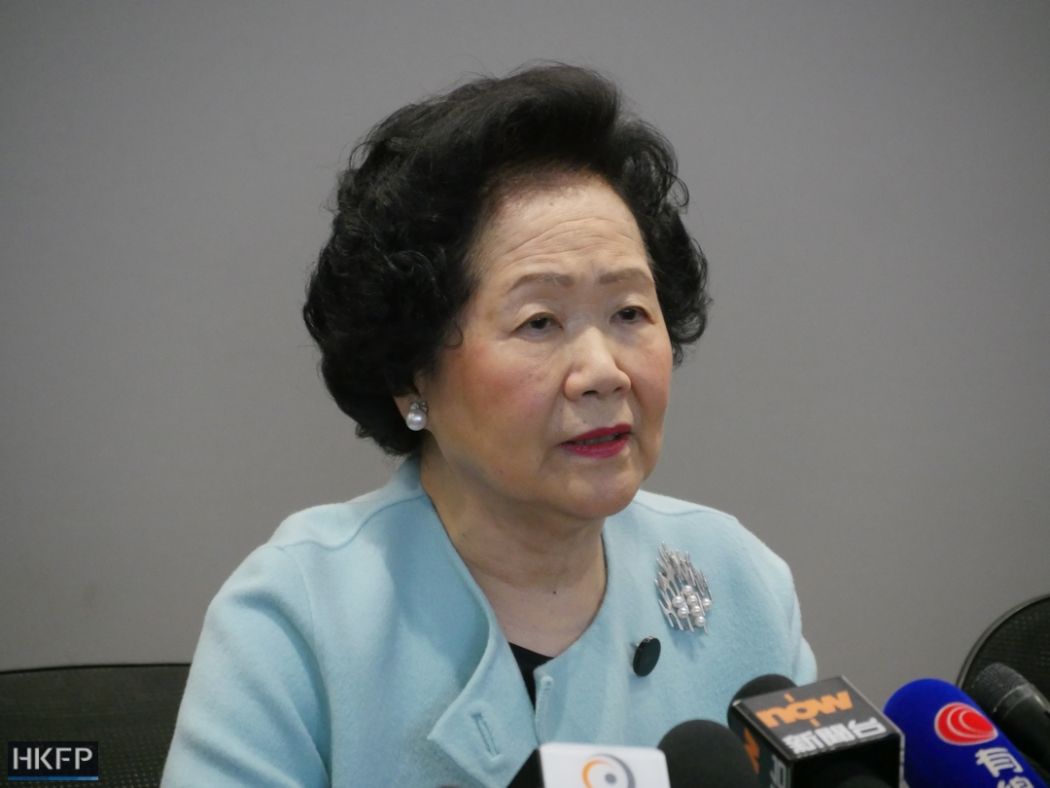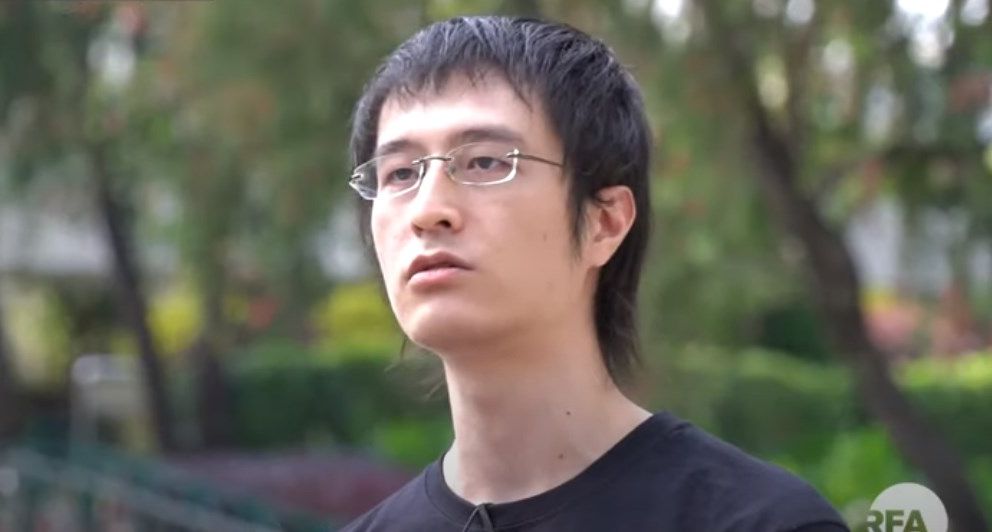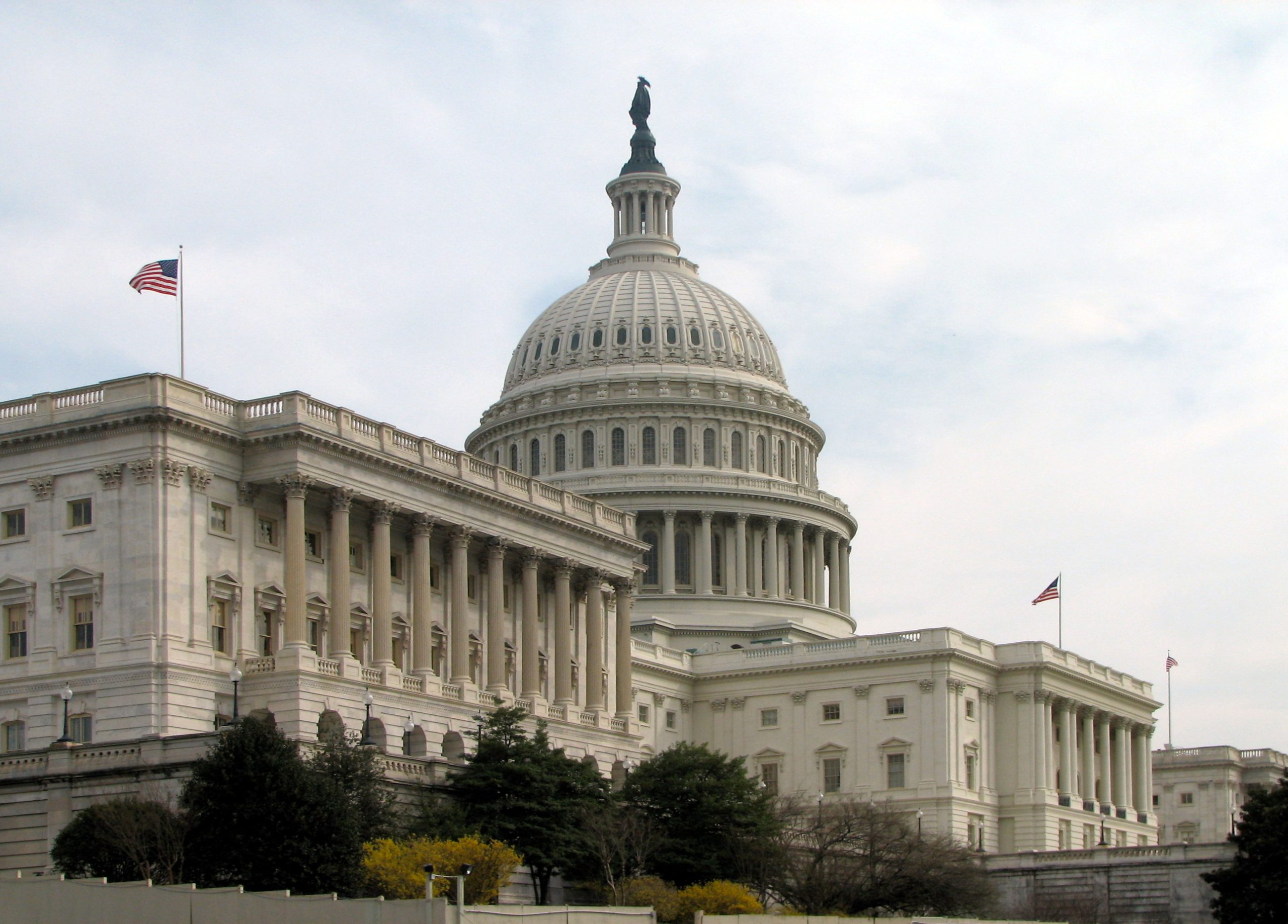Former Hong Kong chief secretary Anson Chan met protesters and asked them if they had an “endgame” after months-long pro-democracy demonstrations and unrest in 2019, the national security trial of media mogul Jimmy Lai has heard.

Prosecution witness Andy Li, an IT programmer turned activist, told the court on Friday that he was invited by the former No. 2 official to a meeting in early 2020. During the meeting, Li said Chan asked him how protesters planned to proceed after a controversial extradition bill sparked large-scale dissent beginning in June 2019.
“At that time there were already a lot of protest actions and rallies, therefore Anson Chan asked whether we had an endgame, and how we planned to achieve it,” Li said in Cantonese as the trial entered its 51st day.
Li said he had attended the meeting in Chan’s office in Hong Kong Island at the invitation of “T”, a pseudonym of paralegal Chan Tsz-wah.
“But me and T did not have an endgame, nor did we have a concrete roadmap regarding what we were going to do, so I would summarise the meeting as fruitless,” he said, adding that his intention at the time was to continue his international lobbying.

Li and Chan Tsz-wah have both pleaded guilty to conspiring to collude with foreign forces under the Beijing-imposed national security law, and have agreed to testify against Lai.
Lai, 76, has pleaded not guilty to two counts of conspiring to collude with foreign forces, punishable by up to life in prison. He also denied one count of conspiring to publish “seditious” materials under colonial-era legislation.
British consul meeting
Li on Friday continued to give evidence over his role in an international advocacy group known as “Fight for Freedom, Stand with Hong Kong” (SWHK), which prosecutors alleged was ultimately financed by Lai in a bid to request foreign sanctions and other “hostile acts” against Hong Kong and China.
The witness said he also met Anson Chan in late-2019, when then-British Consul General to Hong Kong and Macau Andrew Heyn invited the duo to a meeting at his residence in the city.

That meeting was also attended by veteran democrat Martin Lee, as well as former opposition lawmaker Dennis Kwok and Charles Mok, both from the pan-democrat camp, Li said.
Heyn wanted to hear democrats from “different generations” offer their opinions on the state of democracy in the city, Li added.
Li was one of 12 Hongkongers caught by Chinese coastguard in August 2020 during a foiled attempt to escape to Taiwan on speedboat. He spent seven months in a mainland Chinese prison before being transferred back Hong Kong.
Capitol Hill
The court previously heard Li visited Capitol Hill in December 2019 to meet with four Republican senators to lobby for US sanctions on city officials, and that SWHK prepared a “sanctions list” targeting around 140 individuals who allegedly violated human rights during the government’s crackdown on protests that year.
Li on Friday told the court that he was accompanied by protester Sonia Ng, who said she had been sexually assaulted in police custody after being arrested at Prince Edward MTR station on August 31 that year.

Indonesian journalist Veby Mega Indah, who lost her vision in her right eye after allegedly being shot by a police projectile while reporting at a protest, also joined the US visit, he added.
“That’s because the purpose of meeting [US] senators and congressmen was to present the victims of Hong Kong’s protests in flesh and blood,” he said.
The witness said in late-2019 he had a virtual meeting with T and UK-based activist Finn Lau, who is commonly known by the alias “mutual destruction bro.”
The gist of that meeting was that Lau would continue to be a “spiritual leader” and an “influencer” due to his popularity on the LIHKG forum, a platform popular among protesters in 2019, and that he would continue working on the “international front,” Li said.
National security police in Hong Kong have since issued an arrest warrant to Lau over alleged violations of the security law, and placed a HK$1 million bounty on his head, along with 12 other overseas activists.
‘Japan line’
The court heard that Li was also involved in a series of correspondence and meetings with Japanese politicians between late 2019 and early 2020.
Prosecutors have accused Li of engaging in a “Japan line,” and lobbying Japanese lawmakers to approve sanctions acts against the city.

Email correspondences between Li and Takashi Takai, a former member of the House of Representatives in Japan, suggested that Li had forwarded a draft bill for a human rights act to Takai in January 2020.
Li said the draft bill was penned by a volunteer who resided in Japan, but added that he had not studied it carefully.
He said Takai and his wife visited the city that month, and that he introduced the pair to then-district councillor Timothy Lee and took them to the bridge at the Chinese University of Hong Kong, where serious clashes broke out between protesters and police at the height of the protests.
The witness added that he took a trip to Japan in December 2019, when he presented used teargas cannisters and briefed Satoshi Inoue and Taku Yamazoe, both lawmakers from the Japanese Communist Party, on the protests.
When Lai’s trial began on December 18, 2023, he had already spent more than 1,000 days in custody after having had his bail revoked in December 2020. Three judges – handpicked by Hong Kong’s chief executive to hear national security cases – are presiding over Lai’s trial in the place of a jury, marking a departure from the city’s common law traditions.
The trial continues on Monday.
Support HKFP | Policies & Ethics | Error/typo? | Contact Us | Newsletter | Transparency & Annual Report | Apps
Help safeguard press freedom & keep HKFP free for all readers by supporting our team
























